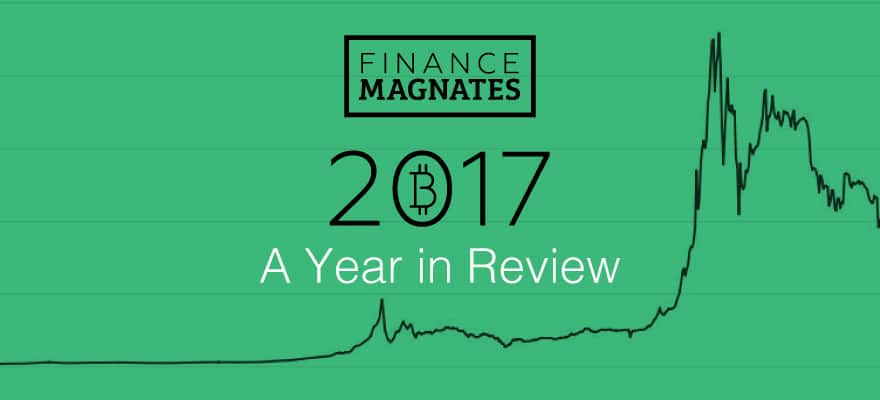As cryptocurrency gained massive clout as a technological, financial, and pop cultural movement in 2017, governments and financial institutions were forced to react - and fast. As such, a series of cryptocurrency-related regulations have swept the globe.
Cryptocurrency is still such a new phenomenon, however, that regulations will undoubtedly need to change and grow in order to encompass something that is (in many ways) inherently unregulatable.
The ICO industry in 2017 grew into a multi-billion dollar beast, bringing unprecedented amounts of starting capital to Blockchain startups; this year also saw its share of multi-million dollar hacks, scams, and scandals in the ICO industry.
Altogether, the world of cryptocurrency is turning onward with great momentum and great uncertainty. While the rest of the world has indeed begun to build legal, cultural, and financial structures for the integration of cryptocurrency into its existing systems, there is still quite a journey ahead.
A Worldwide Push for Crypto Regulations
The cryptocurrency landscape as a whole was significantly shaped by the passage of legislation that regulated crypto trading and ICOs, and attempted to enforce taxation on profits raised by both endeavors.
The Japanese Virtual Currency Act, which was passed in April, was the first piece of legislation in the world to give legal status to any cryptocurrency (ETH and BTC, in this case). Many cite the VCA as a major contributing factor to the meteoric rise of BTC and ETH in Q2 of this year.
In the United States, the SEC ruled in mid-July that some (but not all) tokens sold during ICOs could be legally considered to be securities, and needed to be treated as such. The ruling came in the wake of the massive DAO hack, in which 3.6 ETH tokens (worth roughly $50 million at the time) were stolen. Despite the ruling, no one involved in the DAO or the hack received any legal repercussions for what happened.
One of the most notable legislative journeys took place in China, a country that began the year as the country that dominated global crypto trading, with 98% of the world’s BTC trading volume at the beginning of the year. Following an investigation by the People’s Bank of China into the country’s three largest cryptocurrency exchanges, that number plummeted to just 30%, spreading trading volume more evenly across the globe. The investigation also caused the value of BTC to temporarily plummet.
In September, China made the decision to ban ICOs and domestic cryptocurrency exchanges, causing another death-drop in the price of BTC. While it took several weeks for BTC to recover, many analysts argued that the reduction of China’s role in the Bitcoin market was a healthy thing for the cryptocurrency in the long run, largely because of long-suspected BTC market manipulators based in China. South Korea and Vietnam also made the decision to ban ICOs.
India, Mexico, Malaysia, the Philippines, Gibraltar, and many other nations drafted and passed cryptocurrency legislation of their own. Some nations are choosing to treat cryptocurrency with caution; others see the crypto industry opportunistically.
The EU has remained largely ambivalent in terms of cryptocurrency Regulation , and the legal status of cryptocurrency varies country-by-country, as it varies state-by-state in the United States.
The ICO Boom - and Bust?
The hundreds of ICOs that took place throughout 2017 collectively raised more than $3.7 billion dollars, a number that surpassed early-stage VC funding for internet companies. Most notable were the EOS, Tezos, and Filecoin ICOs, which raised $185 million, $232 million, and $257 million, respectively.
Despite what many consider to be the widespread success of the ICO industry as a whole, however, Ethereum creator Vitalik Buterin famously said in September that the world was “in an ICO bubble”. Buterin hypothesized that the ICO boom was largely fueled by FOMO (fear of missing out), and that the market would eventually need to find a way to become more discerning.
By some accounts, it seems that the market did mature - cryptofinance research firm Smith + Crown reported that only 69 of the 169 ICOs that took place in the month of October completed their sales on time. The rest were forced to postpone or cancel their sales outright. That being said, more than $743 million were raised through ICOs in November, a record-breaking figure.
The unregulated nature of ICOs caused the ICO industry to be particularly vulnerable to scams and hacks. While there have been many amazing pieces of technology that have emerged as a result of funds collected during an ICO, there have been quite a few ICOs created or hacked solely for the purpose of getting rich, and quick.
The $50 million DAO hack was perhaps the most notable ICO breach of 2017, although it certainly wasn’t the only one. $7 million wass stolen during the hack of the CoinDash ICO; the Confido ICO, which raised less than $1 million, was eventually dubbed an ‘exit scam’.
The Tezos ICO became the subject of controversy in October when a highly publicized spat between the company’s core members sent the coin’s futures tumbling 75%, a drop that it has not managed to recover from. The company has also been the target of multiple class-action lawsuits seeking compensation for ICO participants; despite the trouble, however, the Tezos tokens purchased during the ICO are scheduled for distribution in February in accordance with the original plan.
The launch of IndieGogo's platform for hosting ICOs may be another sign that the market is finding ways to be more discerning.
Undoubtedly, the next year will see an uptick in ICO and cryptocurrency-related regulations that could cause the market to become less saturated and more mature. While the future is uncertain, we can hope that the world of cryptocurrency will grow to support more technologically and financially sound projects, while filtering out projects with less promise.






















